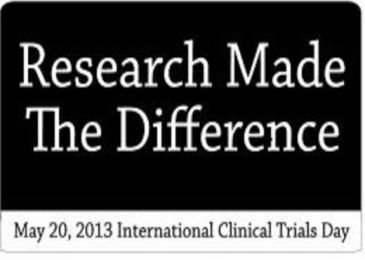Why we need clinical trials
May 20, 2013 | Monday | News | By BioSpectrum Bureau
Why we need clinical trials
Commemorating the huge impact that clinical trials have had on improving healthcare in the world, today, May 20, 2013 was celebrated as the International Clinical Trials Day. The day is celebrated in the honor of Dr James Lind, considered the originator of clinical trials, who started his famous trial to treat scurvy. Dr Lind carried out his experiment to study the efficacy of citrus fruits in preventing scurvy in 1747 while serving on board HMS Salisbury. All his scurvy patients were given the same general diet which was supplemented with various additional items that included cider, elixir vitriol, vinegar, seawater, nutmeg and oranges and lemons. In just six days, patients taking citrus fruits were fit for duty and Lind was able to establish the link between citrus fruits in the diet and the prevention of scurvy.
As a part of the commemoration of this day, a panel discussion was organized in Mumbai's KEM on Clinical Research in India. Currently even though India has 16 percent of the world's population and 20 percent of the global disease burden, yet, less than 2 percent of global trials take place in India. Recently, the clinical trial industry has been in the eye of the storm due to dubious practices adopted by a few organizations. This has led to a strong call for transparency in carrying out clinical trials in the country. Originally hailed as a fast growing sector, the CRO industry has faced setbacks due to delays in approvals.
The Indian Society for Clinical Research (ISCR) plans to commemorate International Clinical Trials Day with the theme, "Research Made The Difference" to highlight the positive difference that clinical research has made to a cross section of stakeholders, most importantly patients who have benefitted from newer and better medicines.
Clinical trials have progressed considerably since Dr Lind's experiment. In 1863, placebos were first used in a clinical trial and in 1923, the concept of randomisation was introduced. The first trial using appropriately randomised treatment and control groups was carried out in 1948 by the Medical Research Council, and involved the use of streptomycin to treat pulmonary tuberculosis. This trial also featured blind assessment (where neither the researchers nor the patients knew which treatment group each patient was in at the time of the study) enabling unbiased analysis of the results.
In India, the management of clinical trial data has supported growth of the Indian IT/KPO sector. Positive spin offs in allied disciplines leading to expansion of special labs devoted to clinical trials and development of clinical trial packaging and distribution industry. Clinical research has become an attractive new discipline and created job opportunities. Today, we have a large and growing number of trained clinical research professionals - research physicians, regulatory and ethics experts, study managers, monitors, quality assurance and pharmacovigilance experts, data managers, biostatisticians, and medical writers.









